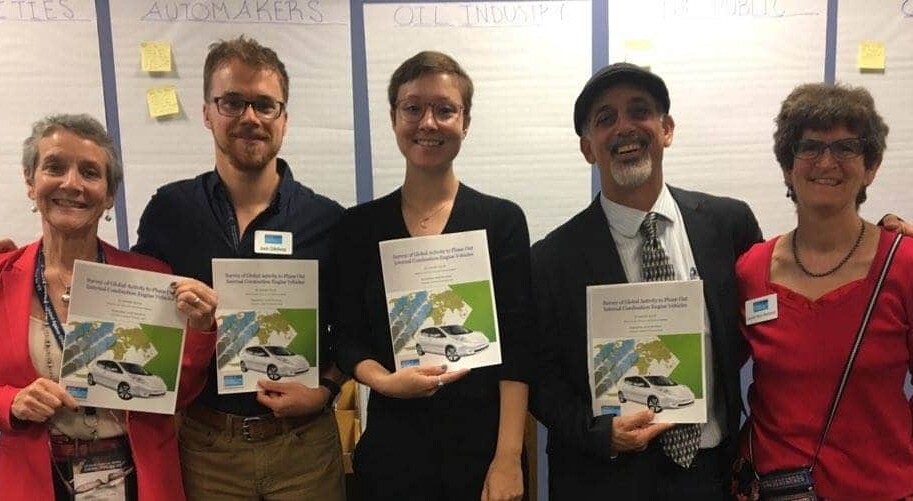by Isabella Burch, The Climate Center
On September 12, Ann Hancock, Jock Gilchrist, and I had the great honor of participating in a panel discussion entitled “Gas/Diesel Car Phaseouts: Global Strategy To End Gasoline Use”. This was an affiliate event for the larger Global Climate Action Summit in San Francisco. Hosted by Coltura and the Sierra Club, the panel was moderated by the Sierra Club’s Executive Director Michael Brune. Panelists included:
- Mark van Kerkhof: Consultant, Formula E-Team
- Andreas Klugescheid: Head of Steering Government, External Affairs and Sustainability Communications, BMW Group
- Anirban Ghosh: Chief Sustainability Officer, Mahindra Group
- Yunshi Wang: Director, China Center for Energy and Transportation of the UC Davis Institute of Transportation Studies
The panel, for the most part, inspired hope. With half of the speakers representing hard-hitters from the automotive industry, the image of progress in EV sales demonstrated the momentum that zero-emission transportation has picked up. For example, while it took BMW three years to sell its first 100 thousand cars, it only took 1 year to sell the second 100 thousand. The sentiment of excitement was echoed by all of the panelists, despite their concerns about developing infrastructure and accelerating the rate of demand for EVs to the rates required to meet Paris Climate Talks CO2 reduction goals.
During the discussion, we were proud to share a revised copy of our “Survey on Global Activities to Phase out ICE Vehicles,” which outlines the commitments that various governments around the world are making to shift to clean vehicles.
The most interesting clash during the panel discussion was whether or not “mandates make markets”. During the Q&A Mr. Brune contradicted the panelists by arguing that, yes, mandates do make markets. He contended that this was especially the case in the clean energy sector.
For a government ban on ICE Vehicles to be comfortable for constituents, we need companies to pursue superior iterations of EV technology. That said, we must meet international targets for carbon reductions for the health of our planet, and legally requiring people to move away from fossil fuels in their commute may be the only way. The right policies and the best technologies must come together to create the best scenario for consumers and for our climate.
